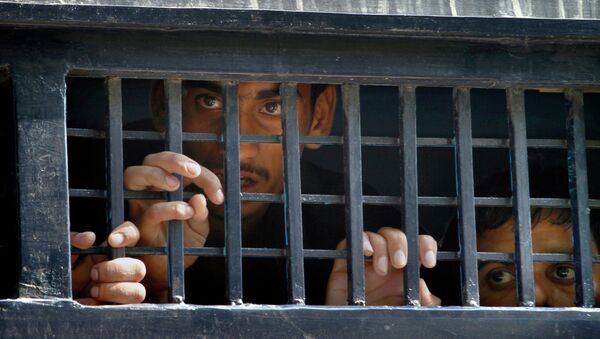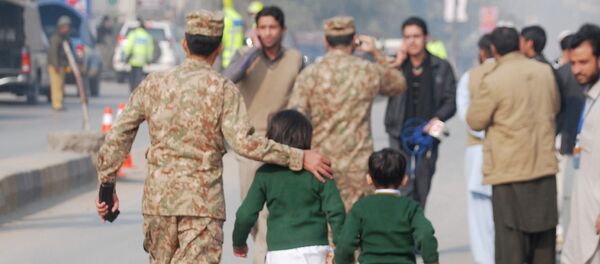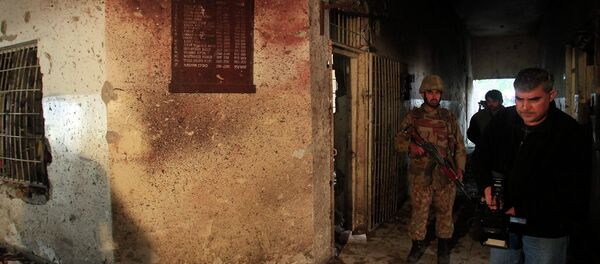“We will only execute militants whose appeals for mercy have been rejected by the president [Mamnoon Hussain],” Newsweek Pakistan quoted him as saying at a press conference in Islamabad on Sunday.
The announcement comes in the wake of a recent order by Pakistani Prime Minister Nawaz Sharif to lift the death penalty moratorium in the country, following last week’s attack on a school in the northwestern city of Peshawar, which left 149 people dead including 133 children.
The interior minister, however, has claimed the decision to end the death penalty moratorium hadn't been motivated by that Taliban attack.
“The government took the decision before the Peshawar school attack in light of the Army chief’s suggestion to resume capital punishment as a deterrent to [potential] terrorists,” he said.
On Monday, Prime Minister Sharif ordered the office of the Attorney General of Pakistan and the country's top legal team to actively pursue all cases where some courts have granted stay orders against the executions of terrorists, according to the Pakistani newspaper The Express Tribune.
The prime minister said that the government is committed to eliminating terrorism at any cost.
“There will be no mercy for those who have killed our children, citizens and soldiers,” the newspaper website quotes a spokesperson as saying.
“The Prime Minister has also issued directions for appropriate measures for the early disposal of pending cases related to terrorism," AFP quotes the spokesman as saying.
Human Rights Watch termed the executions a craven politicized reaction to the Peshawar killings and demanded that no further hangings be carried out, according to a statement on its official website.
The global watchdog stressed that executions of those convicted on terrorism charges will not help bring the Peshawar school attackers to justice and Islamabad should abstain from "vengeful blood-lust".
Maya Foa, head of the human rights group Reprieve, said that their research suggests that many of the individuals who would be first in line for execution are simply not terrorists, and that the law is being abused in a way that perverts justice and fails to keep anyone safe.
Five of them were allegedly involved in a failed attempt to assassinate the then-military ruler Pervez Musharraf in 2003, while one was involved in a 2009 attack on army headquarters.
Akhlaq repeatedly denied all charges brought against him and the Russian Foreign Ministry contacted the Pakistani authorities several times in a last-ditch attempt to resolve the case.
His parents say no evidence has ever been presented confirming his guilt.






